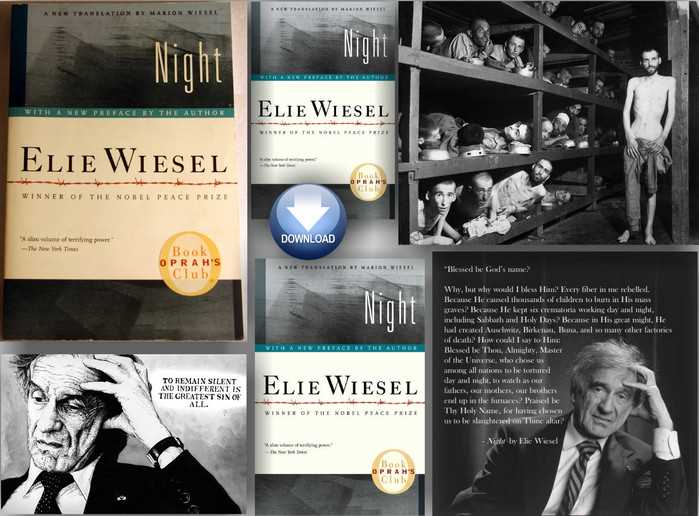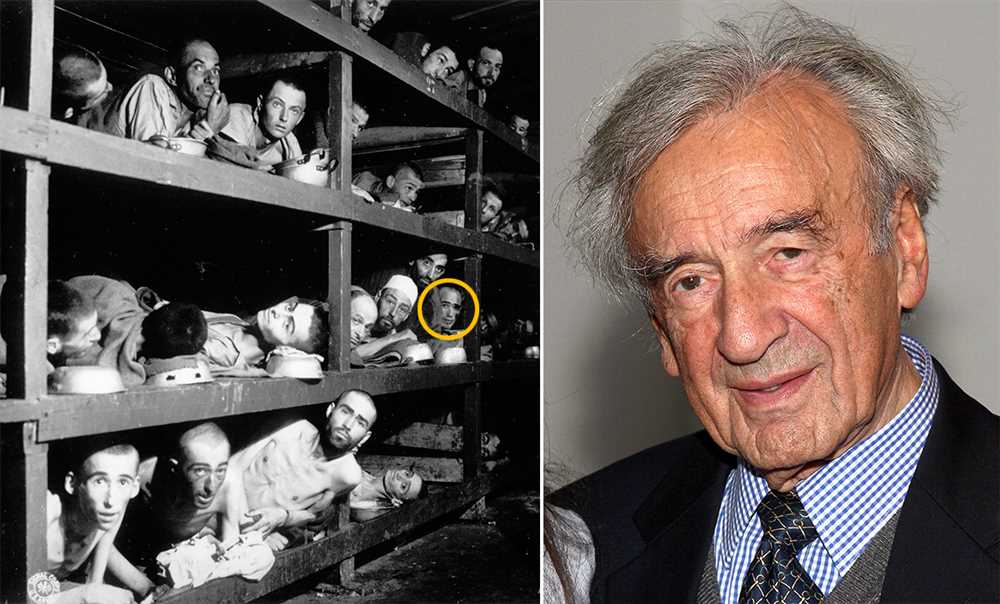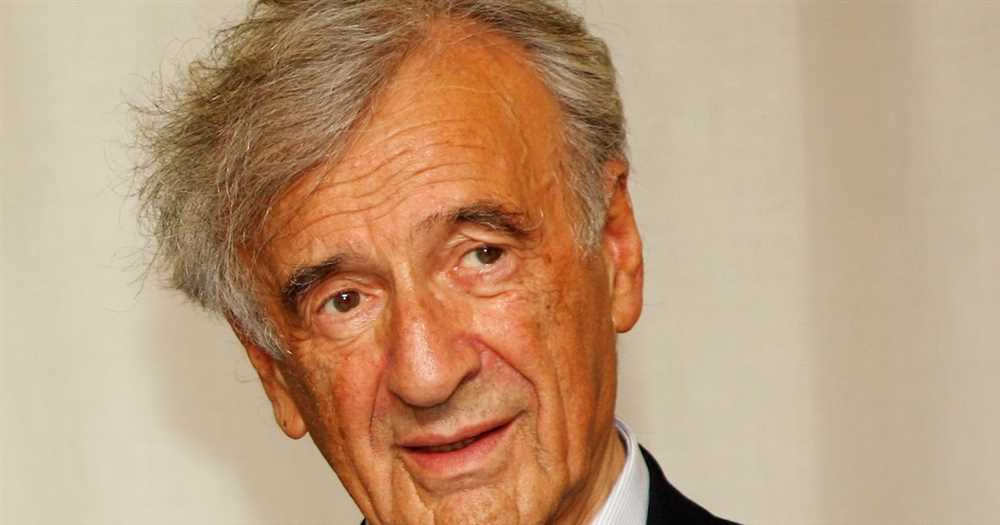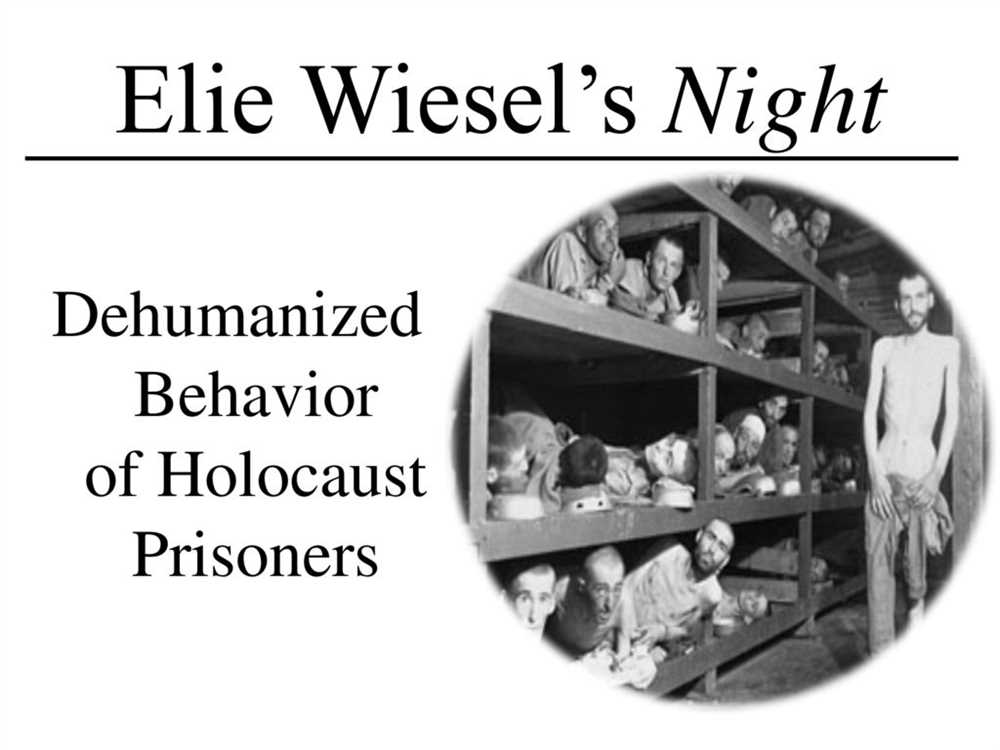
Night by Elie Wiesel is a powerful and haunting memoir that testifies to the unimaginable horrors of the Holocaust. Written by Wiesel himself, a Holocaust survivor and Nobel Peace Prize laureate, this literary masterpiece chronicles his experiences as a teenage Jewish boy during World War II.
In his memoir, Wiesel bears witness to the atrocities committed by the Nazis, capturing the dehumanization, suffering, and loss that he and millions of others endured. Through his vivid and poignant writing, Wiesel transports readers to the darkest depths of human cruelty, where people were reduced to mere numbers and stripped of their dignity.
Throughout Night, Wiesel grapples with profound questions of faith, morality, and the existence of God in the face of unspeakable evil. The memoir serves as both a historical document and a profound philosophical reflection on the nature of humanity. As readers traverse Wiesel’s journey from innocence to despair, they are forced to confront the harsh realities of genocide and the importance of remembrance.
Night is not only a gripping personal account but also a universal testament to the resilience of the human spirit and the power of storytelling. Wiesel’s haunting words serve as a stark reminder of the horrors that took place and the importance of standing against injustice. This seminal work continues to educate, inspire, and remind us of the need to strive for a world free from hatred, discrimination, and genocide.
The Background of “Night” by Elie Wiesel

Elie Wiesel’s memoir “Night” is a poignant account of his experiences during the Holocaust. Wiesel, a Jewish teenager at the time, was taken with his family from their home in Sighet, Romania, and deported to Auschwitz concentration camp during World War II. The book chronicles his journey through various concentration camps, including Auschwitz and Buchenwald, and his ultimate survival.
“Night” is a testament to the horrors and atrocities committed during the Holocaust. Wiesel’s writing is deeply personal, as he recounts the loss of his family, the dehumanization of the prisoners, and the pervasive darkness that enveloped their lives. The memoir serves as a stark reminder of the depths of human cruelty, but also the resilience of the human spirit in the face of unimaginable suffering.
In “Night,” Wiesel grapples with profound questions of faith, morality, and the existence of God. As a deeply religious teenager prior to the Holocaust, he is confronted with the ultimate test of his beliefs in the face of such unspeakable evil. The book explores the theme of theodicy, questioning how a just and loving God could allow such atrocities to occur.
Published in 1955, “Night” initially received little attention. However, it has since become one of the most widely read and studied works on the Holocaust. Wiesel’s haunting prose and raw honesty have made “Night” a powerful and influential work, ensuring that the atrocities of the Holocaust are never forgotten.
World War II and the Holocaust
The outbreak of World War II in 1939 created a tumultuous period in history, with devastating consequences for millions of people around the world. One of the darkest chapters of this war was the Holocaust, which targeted and systematically exterminated six million Jews, along with other marginalized groups such as Romani people, disabled individuals, and political dissidents.
Under the leadership of Adolf Hitler and the Nazi regime, the Holocaust was carried out through a series of policies and actions that aimed to eliminate the Jewish population from Europe. This included the establishment of concentration camps, where individuals were subjected to forced labor, starvation, medical experiments, and mass killings.
- Dehumanization: As part of their strategy, the Nazis dehumanized Jews, stripping them of their rights, property, and dignity. They portrayed them as an inferior race, spreading propaganda that fueled anti-Semitic sentiments.
- Persecution: Jews were systematically persecuted, with anti-Jewish laws enacted to isolate and marginalize them. They were forced to wear identification badges and face restrictions on employment, education, and movement.
- Concentration camps: The Nazis established a network of concentration camps across Europe, where millions of Jews and other prisoners were held in appalling conditions. Thousands died due to starvation, disease, and execution.
- Mass extermination: In an effort to achieve the “Final Solution,” the Nazis implemented mass killings through methods such as gas chambers, shootings, and cremation. The most notorious extermination camp was Auschwitz-Birkenau, where millions were murdered.
The Holocaust stands as a stark reminder of the depths of human cruelty and the atrocities that can be committed in the name of hatred and prejudice. It serves as a testament to the need for remembrance, education, and the promotion of tolerance and empathy to ensure that such horrors are never repeated.
Elie Wiesel’s Experiences during the Holocaust
Elie Wiesel, a Jewish teenager from Sighet, Romania, experienced unimaginable horrors during the Holocaust. Wiesel and his family were forcefully taken from their home and sent to Auschwitz-Birkenau, one of the most notorious extermination camps. This marked the beginning of Wiesel’s nightmare, as he was separated from his mother and sisters forever. He and his father, Shlomo, were left to face the brutalities of the concentration camp together.
Life in Auschwitz was a constant struggle for survival. Wiesel and his father endured hunger, exhaustion, and the constant threat of death. They were subjected to harsh physical labor, often forced to carry heavy loads or dig trenches. The prisoners were constantly dehumanized and stripped of their dignity, as they were treated as nothing more than disposable objects. Wiesel witnessed acts of senseless violence and cruelty on a daily basis, as fellow prisoners were beaten, starved, and sometimes murdered in cold blood.
One of the most haunting experiences for Wiesel was the infamous selection process carried out by the Nazi doctors. Prisoners would be lined up and subjected to a brief examination, determining who was fit to work and who would be sent to the gas chambers. This dehumanizing process filled Wiesel with terror and despair, as he witnessed friends and loved ones being chosen for death. The constant fear of being selected himself weighed heavily on his mind, as he faced the harsh reality that his life could end at any moment.
- Wiesel’s experiences during the Holocaust left him scarred for life.
- He lost his faith in God and questioned the existence of humanity.
- After the liberation of the camps, Wiesel found himself wrestling with survivor’s guilt.
- He became a vocal advocate for Holocaust education and human rights.
- Wiesel’s memoir “Night” serves as a powerful testament to the horrors of the Holocaust and a reminder of the importance of remembering and learning from history.
Elie Wiesel’s experiences during the Holocaust serve as a stark reminder of the atrocities committed during this dark period in history. His firsthand account sheds light on the unimaginable suffering endured by millions of innocent people. Through his writings and advocacy, Wiesel dedicated his life to ensuring that the world never forgets the horrors of the Holocaust and works towards preventing such atrocities from happening again.
Major Themes in “Night” by Elie Wiesel

Elie Wiesel’s memoir “Night” is a powerful and poignant depiction of his experiences during the Holocaust. The book explores several major themes that not only reflect the horrors of the Nazi regime but also provide insights into the human condition and the nature of faith.
1. Holocaust and Survival: One of the primary themes in “Night” is the Holocaust and the unimaginable atrocities committed by the Nazis. Wiesel vividly portrays the inhumanity and brutality of the concentration camps, depicting the dehumanization and suffering of the Jewish people. Through his personal experiences, he shows the struggle for survival and the will to live against all odds. The theme of survival is central to the narrative as Wiesel and his father fight to stay alive in the face of hunger, disease, and violence.
2. Loss of Faith: Another significant theme in “Night” is the loss of faith. The Holocaust tested the faith of many individuals, and Wiesel explores the profound impact it had on his own beliefs. As he witnesses the horrors perpetrated by the Nazis, he questions the existence of a benevolent God and struggles to maintain his religious convictions. The memoir depicts the gradual erosion of his faith and the ultimate loss of trust in a higher power, as he grapples with the cruelty and indifference of the world.
3. Identity and Inhumanity: “Night” also delves into the themes of identity and inhumanity. Wiesel and his fellow prisoners are stripped of their humanity in the concentration camps, reduced to mere numbers and subjected to inhumane treatment. The memoir highlights the dehumanizing effects of the Holocaust and explores the ways in which the Nazis sought to destroy the individual identities of their victims. Wiesel’s struggle to maintain his sense of self and dignity in the face of such dehumanization is a central theme throughout the book.
4. Memory and Remembrance: The theme of memory and remembrance is also significant in “Night.” Wiesel’s memoir serves as a testament to the victims of the Holocaust and a plea to remember and learn from history. He believes that forgetting the past can allow such atrocities to happen again. “Night” serves as a form of remembrance, preserving the memory of those who suffered and died during the Holocaust, and serves as a warning against the dangers of indifference and apathy.
In conclusion, “Night” by Elie Wiesel explores themes of the Holocaust and survival, loss of faith, identity and inhumanity, as well as memory and remembrance. Through his powerful storytelling, Wiesel compels readers to confront the darkest aspects of humanity and to reflect on the importance of remembering and learning from the past.
Loss of Faith

One of the central themes in Elie Wiesel’s memoir “Night” is the profound loss of faith. Throughout the book, Wiesel documents his personal journey from a deeply religious young boy to a disillusioned and broken man. The horrors of the Holocaust, which he witnesses first-hand, shatter his belief in a benevolent and just God.
In the beginning, Elie is a devout follower of Judaism, studying the Talmud with a fervent passion. He is guided by the teachings of his father and the rabbis, finding solace in his faith even in the face of increasing anti-Semitism. However, as the atrocities of the concentration camps unfold before his eyes, Elie’s faith is brutally tested. The unimaginable suffering and cruelty he witnesses lead him to question the existence of a loving God who would allow such horrors to occur.
As the memoir progresses, Elie describes moments of disillusionment and despair, as his belief in God wanes. He witnesses the hanging of a young boy and hears the prisoners’ cries of “Where is God now?” He sees the bodies of innocent children burned in the crematorium and wonders how a just God could allow such evil to prevail. In these moments, Elie’s faith crumbles, and he becomes numb to the rituals and prayers that once held so much meaning.
- Elie’s loss of faith is exemplified in the scene where he and the other prisoners are forced to witness the hanging of a young boy. Elie’s initial reaction is one of shock and disbelief – how could God allow such a senseless act of cruelty? The boy’s lingering death on the gallows becomes a metaphor for Elie’s fading belief in a just and compassionate God.
- Another incident that deeply affects Elie’s faith is witnessing the burning of innocent children in the crematorium. He questions the existence of God, wondering how an all-powerful deity could remain indifferent to such agony and suffering. This traumatic experience further erodes his faith and leaves him feeling abandoned and betrayed.
- Throughout his time in the concentration camps, Elie grapples with the idea of divine justice and the existence of evil. He sees fellow prisoners lose all faith and hope, succumbing to a nihilistic outlook on life. Elie’s struggle to reconcile these conflicting beliefs ultimately leads to a loss of faith in a benevolent God.
Overall, Elie Wiesel’s “Night” illuminates the devastating effects of the Holocaust on a young boy’s faith. Through his powerful and haunting narrative, Wiesel portrays the gradual erosion of belief in a just God as a result of unimaginable suffering and cruelty. The loss of faith experienced by Elie serves as a powerful reminder of the profound impact of the Holocaust on the spiritual lives of its survivors.
Inhumanity and Dehumanization

One of the central themes in Elie Wiesel’s Night is the inhumanity and dehumanization that the Holocaust survivors experienced during their time in the concentration camps. The Nazis treated the Jews as less than human, stripping them of their dignity, rights, and basic humanity. This dehumanization was evident in the way they were treated, the conditions they were subjected to, and the atrocities committed against them.
Throughout the memoir, Wiesel vividly describes the inhumanity he witnessed and experienced. He recounts how the Jews were packed into cattle cars, cramped and suffocating, during the transport to Auschwitz. They were stripped of their clothes, belongings, and even their names, instead being assigned numbers tattooed on their arms. The prisoners were subjected to physical and psychological torture, starvation, and brutal beatings, reducing them to mere bodies existing in a constant state of fear and despair.
The inhumanity of the Nazis is further exemplified by the indifference and cruelty displayed by some of the camp guards. They treated the prisoners as objects, torturing and killing them without remorse or empathy. The Jews were not seen as human beings, but rather as subhumans or vermin to be exterminated. This dehumanization not only stripped the prisoners of their physical bodies, but also their sense of self and dignity. They were reduced to animals, driven to the brink of survival, forced to fight and betray one another in order to survive.
In Night, Wiesel emphasizes the lasting effects of this inhumanity and dehumanization on the survivors. He explores the psychological scars they carried long after their liberation, as well as the struggles they faced in trying to reintegrate into society. The cruelty and trauma they experienced in the camps left them forever changed, unable to fully trust or connect with others. The dehumanization they endured denied them of their humanity, leaving them grappling with feelings of guilt, shame, and a profound loss of identity.
In conclusion, Elie Wiesel’s Night portrays the inhumanity and dehumanization that the Jews faced during the Holocaust. The Nazis treated them as less than human, subjecting them to unimaginable suffering and stripping them of their dignity. The memoir serves as a reminder of the depths of human cruelty and the importance of empathy and compassion to prevent such atrocities from happening again.